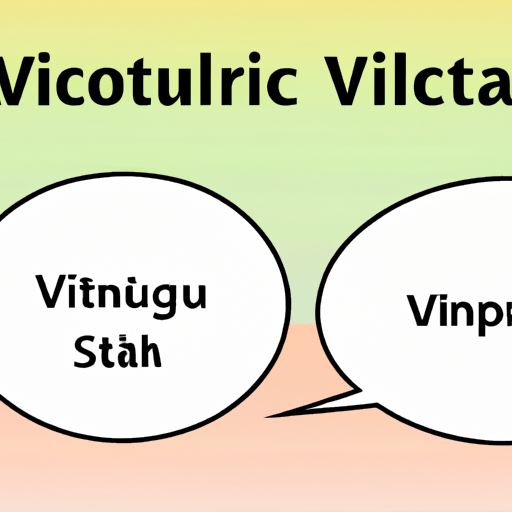Vitriolic pronunciation refers to the act of speaking in a way that conveys hostility or animosity. We’ll explore what vitriolic pronunciation is, how to avoid it, and why it’s important.
What does Vitriolic Pronunciation mean?
Vitriolic pronunciation refers to a language marked by animosity or hostility towards the object under discussion. It is used to insult or denigrate the object of speech and is often used either inadvertently or intentionally to place one person in a higher position than another. This kind of language is common in politics and media and can quickly create a hostile atmosphere around any conversation.
Why is Vitriolic Pronunciation Important
It is important to be aware that vitriolic pronunciation can be damaging to relationships and personal interactions. This kind of language can cause distrust, damage reputations, and even lead directly to physical altercation. This is why it is important to be aware and engaged in meaningful dialogue and discussion, not just a quick remark or insult.
Frequently Asked Questions
1. What is the difference between Vitriolic Pronunciation (or Normal Speech)?
The difference between vitriolic and normal speech is that vitriolic pronouncement is marked by intense animosity or hostility towards the object. It can manifest itself as exaggerated or exaggerated insults or unkind words and can have a powerful impact on those who hear it.
2. Is Vitriolic Pronunciation always bad?
In general, vitriolic pronunciation should be avoided. It can cause damage to relationships and interactions so be careful before using it.
3. How can I avoid using Vitriolic Pronunciation
To avoid using a vitriolic pronunciation, it is best to take a step back before speaking. Before you make a comment, consider whether it will cause harm to the relationship. Instead of trying to score points with a quick remark or clever insult, you should strive for meaningful dialogue.
4. Where can I find examples of vitriolic Pronunciation
You will find examples of vitriolic pronunciation in many areas of society, including media discourse and politics. It is important to be aware and to work to create a more respectful, meaningful dialogue.
5. Why is it important to avoid Vitriolic Pronunciation
To create a more respectful environment, it is important to avoid using vitriolic words. This language can cause damage to relationships, create hostility, and even lead directly to physical altercation.
6. What are some strategies to avoid Vitriolic Pronunciation
Avoiding vitriolic pronunciation involves taking a step back before speaking, striving for meaningful dialog instead of seeking a clever comeback and avoiding using belittling language. It is important to be aware and thoughtful about the power of language before you speak.
7. What are some examples of vitrolic pronunciation?
Exaggerated insults and belittling language are just a few examples of vitriolic speech. This kind of language is common in politics and media and can quickly create an atmosphere that encourages hostility.
8. Can Vitriolic Pronunciation Cause Damage to Relationships
Yes, a bad pronunciation can cause irreparable damage to professional and personal relationships. It is important to be aware that it can be damaging and to seek meaningful dialogue and discussion, not belittlement or insulting language.

Leave a Reply